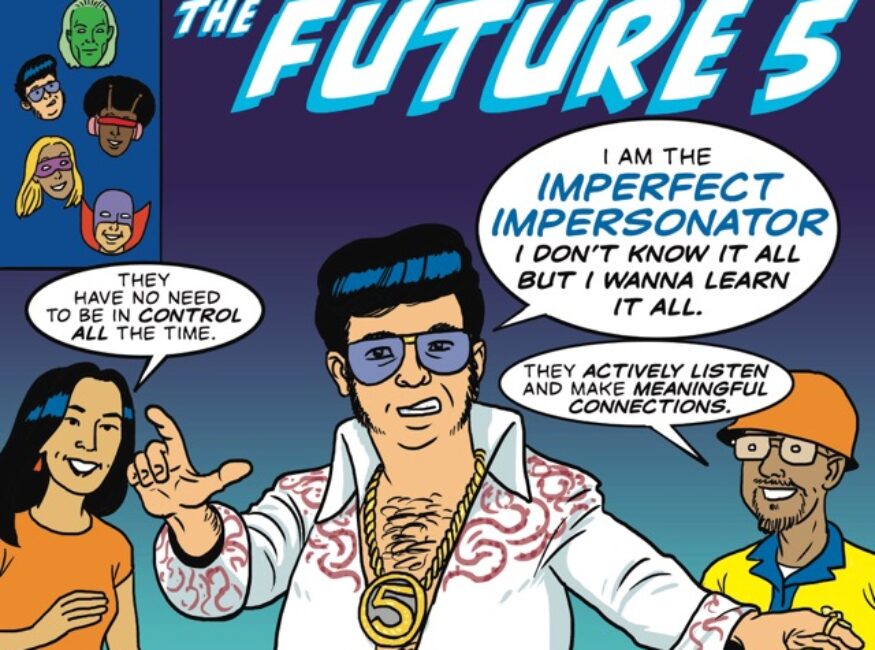Louise has identified five key trends that have emerged through 2021 that will affect businesses for years to come.
What is the biggest change you’ve experienced in 2022?
I joined Keogh Consulting in July 2021. Before that, I held C-suite and senior executive positions primarily in large transport and logistics enterprises. Throughout my career, I’ve designed, managed and delivered major business and organisational transformation and change across operations, asset engineering and investments, business development, and people and culture. Keogh provides a very different focus and pace, however, what I’ve enjoyed about it is the opportunity to “look up and out” and apply the learnings that I’ve gained in my career to date to new problems and opportunities with a new lense across a broader range of industries and stakeholder groups.
Keogh has proven experience and a commitment to provide business transformation, leadership and culture capability support to the health and well-being sector particularly as the people, and the services provided by the sector have come under increased pressure, and greater community need and expectation as a result of Covid. So being able to conclude the first phase of a fairly significant client contract with a large health network has been pretty exciting for me as well as for the business.
I’m also really enjoying time to research and analyse business trends and challenges across our other target markets and client interests. At Keogh, we continue to benefit from the latest research provided by our university partnerships which enable us to review and ensure our consulting approach and products are contemporary, proven, and flexible, to best serve our clients and their ambitions.
What trends have been emerging that you think will continue?
There are five trends that come to mind, which I believe are going to continue into 2022 and beyond.
- The first trend is organisations taking a more humanistic view of the health and safety of their people, but also the impact of their business on the health and sustainability of their local communities and the planet. Whether by intention or response to the pressure to demonstrate a greater focus on sustainable development, we are seeing a shift in the local, national and global interest and urgency around the care for people’s health and wellbeing.
- Secondly is a greater acknowledgement of the critical contribution of human service industries. Human service industries have long been under-resourced and taken for granted despite their importance to both human care and economic prosperity. I hope we see continuing focus and funding in those areas, in particular around health and wellbeing, education, and childcare. It’s certainly needed for a healthy and sustainable society.
- Thirdly, the ever-evolving effects of Covid and events like the Suez Canal obstruction have shown us the need to build greater resilience into supply chains, to be ready to respond to unexpected constraints. Whether that’s about materials for our own domestic use or for the major infrastructure projects. Every country is investing in infrastructure for economic recovery — we’re all chasing the same resources. I believe that businesses will need to take a broader and more collaborative view of their business continuity planning and reviews.
- Fourthly, the utilisation of technology and innovating is moving much faster than pre-Covid. Technology and the digital age was already well underway before the pandemic, but we’ve learned how important it is to remain agile, to prototype and experiment, challenging the usually long and inefficient lead times. We need to manage critical controls, of course, but not be overly bureaucratic so as to slow down innovative and progressive ways of working.
We’re going to continue to see a whole lot of technological innovation around automation, AI, machine learning, use of data and analytics. Even if you think about Covid, we are hungry to see health statistics and understand them from a global perspective. This sparked a whole lot of data engines that we weren’t using globally before.
- Lastly — number five — our recovery will be looked at in terms of sustainability principles. The work that organisations had started on ESG almost as a reputational issue has now become central to the business.
The global recovery absolutely needs to have ESG front and centre, and businesses better be ready for that. Financial backers will question organisations around their environmental, social and governance responsibilities. Carbon neutrality is one big measurable part of ESG, but there are many other areas that need urgent attention like modern slavery, attitudes towards first nations people, the list goes on.
ESG is actually core to business planning. Previously organisations would say, “Oh, by the way, we need a sustainability plan.” Whereas now it’s actually, “No sustainability is the core of our strategy.” And responding to the UN SDGs (Sustainable Development Goals) is actually essential in terms of partnering, access to capital, and reputation. So it’s not a nice to have; it’s a must-have.
I think this is somewhere that Keogh can help, assisting businesses to consider and address their strategy around the five P’s in the UN 2030 agenda: people prosperity, partnership, planet, and peace.
If organisations look at their strategies around those key themes, they absolutely will be aligned to the UN conventions for a sustainable society. I see more and more businesses actually articulating their strategies in that way and looking to employ the people and technology capabilities to deliver this.
What are you most looking forward to in 2022?
I’m looking forward to us finalising our 2022-25 strategy, and continuing to partner with our clients to support them in defining and building the capability to meet their business transformation, leadership and cultural aspirations.






